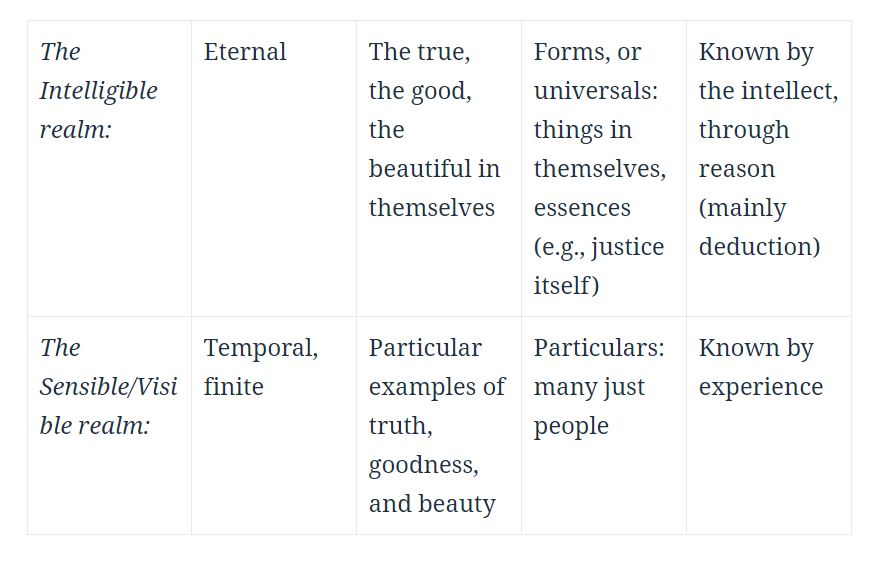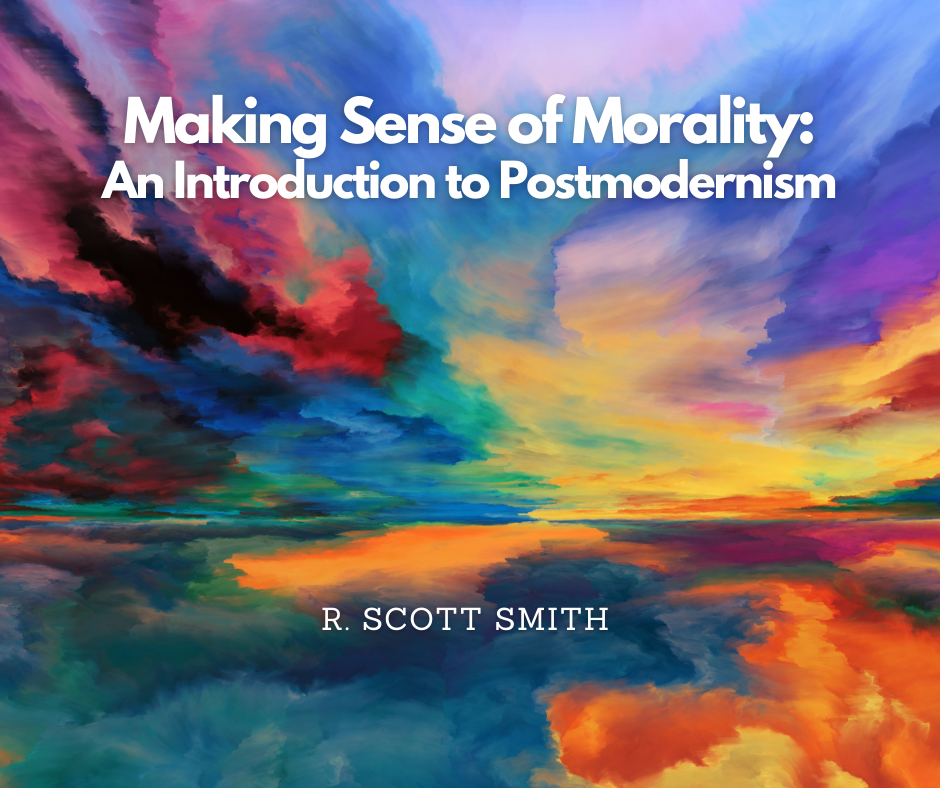Making Sense of Morality: Plato and Aristotle
/Editor’s note: R. Scott Smith has graciously allowed us to republish his series, “Making Sense of Morality.” You can find the original post here.
Introduction
To begin our historical tour, I will start with the ancient Greeks. I will focus on Plato and Aristotle, who still much influence on western ethics.
Plato
For Plato, morals are not human products. Instead, they exist objectively in the intelligible realm, which includes the forms. A form is a universal that itself is not located in space and time (it is metaphysically abstract). A universal is one thing, yet it can have many instances in the visible, sensible realm. For example, justice is a universal, and there can be many just people. The identical quality, justice, can be found in many instances.
A comparison of these two realms:
Plato’s Two Realms
Justice can be instanced in a human being because humans are a body-soul duality, and the soul is their essential nature that defines them as the kind of thing they are. All humans should be just, and to reach their true goal, or telos, they need a proper balance of the good, the true, and the beautiful.
Yet, it is hard to reach the telos, for the process of education in the knowledge of the good is very difficult. His “cave” illustration shows that only a few people leave the “shadows,” a place of illusions which they mistake for reality. Instead, only a few strive toward the true light outside the cave and acquire knowledge of the forms.
In this, Plato questionably assumes all people want to be virtuous. All they need is education and effort. Furthermore, though he realizes people should be virtuous, he seems to lack a “connection” between the moral forms and human nature. Why is justice appropriate for our souls?
Today, it is hard for many even to conceive that there could be immaterial and objectively real entities. Still, can Plato’s view sustain the four core morals? It seems it can; the virtues of love and justice, as well as the principles that we should not murder or rape, would be universals that are normative for all. Moreover, we know these morals by reason, which fits with our intuitive knowledge of their validity.
Aristotle
For Aristotle, there is a deep unity between the body and the soul. The body is appropriate for humans due to the kind of thing they are (i.e., our essence). Similarly, the cardinal virtues (prudence, temperance, justice, and courage) are appropriate for humans due to their soul’s nature. As one’s essence, the soul enables a person to grow and change and yet remain the same person. That is, one’s personal identity is constituted by one’s set of essential properties and capacities (even for virtues), which do not change. If people changed in some way essential to them, they’d no longer exist! Yet, they can undergo other kinds of changes, like the development of the virtues, and still be the same individuals.
Aristotle’s ethics is practical, seeking how to achieve the function of a human being, which is to guide one’s actions by reason. The virtues are developed by habituation and training. This involves being apprenticed to someone who has the virtues. Moreover, virtues are a mean between two extremes. For instance, courage is a mean between cowardliness (a vice of deficiency) and rashness (the vice of excessiveness). Moreover, like Plato, the good is found in community; Aristotle would not support the western, autonomous individual.
Like Plato, Aristotle believed in universals, though they always had to be instanced in particulars. Still, immaterial, objectively real universals exist, which rubs against today’s common belief that humans are just physical things. Moreover, he was pretty confident in human abilities to use our reason and know universal truths, as well as in our abilities to be virtuous by habituation. Even so, like Plato, it seems his views can preserve the four core morals and our knowledge thereof. Of course, we will have to see later if it is reasonable to believe there are real, immaterial universals.
Further Reading
Aristotle, Nichomachean Ethics
Plato, The Republic, Books, 4, 6, 7, & 10
R. Scott Smith, In Search of Moral Knowledge, ch. 2
R. Scott Smith is a Christian philosopher and apologist, with special interests in ethics, knowledge, and seeing the body of Christ live in the fullness of the Spirit and truth.






















